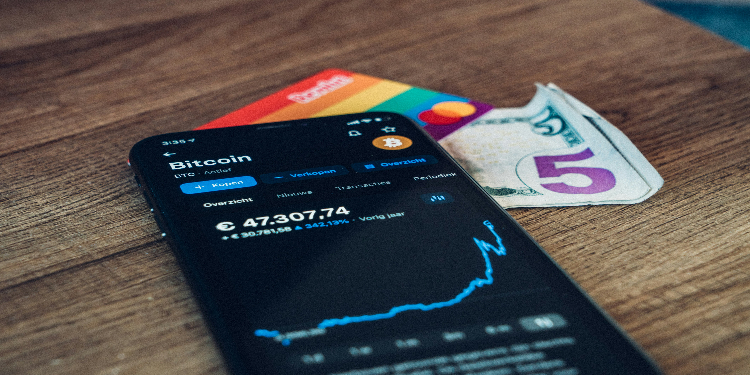Securing your Bitcoin funding portfolio is paramount in the dynamic and regularly risky global market of cryptocurrencies. As the pioneer of virtual property, Bitcoin gives precise opportunities for growth and diversification; however, it also requires strong security features to protect against robbery, hacking, and operational risks. Additionally, if you are into crypto investment, you may consider using a trusted trading platform such as Syntrocoin.
Understanding Security Risks in Bitcoin Investing
Bitcoin’s decentralized nature and cryptographic concepts provide inherent protection benefits; however, traders need to continue to be vigilant towards diverse protection dangers.
Cybersecurity Threats
- Phishing Attacks: Malicious actors might also try to steal non-public keys or credentials via phishing emails, websites, or social engineering methods.
- Malware: Computer viruses, keyloggers, and ransomware can compromise device protection and get admission to Bitcoin wallets.
- Exchange Hacks: Centralized cryptocurrency exchanges are prone to hacking attempts, resulting in the robbery of Bitcoin holdings saved at the trade.
Operational Risks
- Loss of Private Keys: Bitcoin wallets depend upon personal keys for transaction authorization and asset control. Losing or mishandling non-public keys can result in an irreversible lack of Bitcoin.
- Human Error: Mistakes in transaction inputs, pocket configurations, or safety protocols can bring about an accidental lack of finances.
- Regulatory Changes: Evolving regulatory frameworks might also impact the legality, taxation, and operational practices of Bitcoin investments globally.
Essential Strategies to Secure Your Bitcoin Investment Portfolio
Use Secure Wallet Solutions
- Hardware Wallets: Utilize hardware wallets (e.g., Ledger Nano, Trezor) to shop Bitcoin offline in bloodless storage. Hardware wallets offer strong security against online threats by maintaining private keys offline and requiring physical access for transactions.
- Paper Wallets: Generate and keep Bitcoin private keys offline on paper. Paper wallets are resistant to online attacks but require careful handling to prevent bodily loss or damage.
Implement Multi-Factor Authentication (MFA)
Enable MFA on cryptocurrency alternate bills, wallet programs, and online platforms. MFA provides a further layer of security requiring users to offer multiple sorts of verification (e.g., password, SMS code, authenticator app) to get admission to debts or authorize transactions.
Regularly update security software
Keep laptop working structures, antivirus software programs, and wallet programs updated with today’s safety patches and updates. Regular updates mitigate vulnerabilities and defend against rising cybersecurity threats focused on Bitcoin investments.
Practice cold storage and backup protocols
Store the majority of your Bitcoin holdings in bloodless storage, consisting of hardware wallets or offline paper wallets. Implement stable backup approaches for pocket restoration seeds or private keys saved in more than one secure place to save you from loss due to hardware failure or bodily harm.
Conduct Due Diligence on Exchanges and Service Providers
Research and pick legitimate cryptocurrency exchanges and service carriers with an established track record of security, regulatory compliance, and customer service. Verify change security features, coverage coverage for virtual belongings, and adherence to industry excellent practices in safeguarding Bitcoin holdings.
Educate yourself on security best practices
Stay informed about approximately evolving cybersecurity threats, phishing scams, and social engineering tactics focused on Bitcoin traders. Educate yourself on high-quality protection practices, along with spotting suspicious emails, verifying website URLs, and practicing discretion when sharing private information online.
Mitigating regulatory and compliance risks
Understand regulatory requirements
Stay informed about regulatory traits and compliance necessities for Bitcoin investments in your jurisdiction. Familiarize yourself with tax implications, reporting obligations, and legal considerations to ensure compliance with regulatory suggestions.
Engage with Legal and Financial Advisors
Consult legal and monetary advisors specializing in cryptocurrency investments to navigate regulatory complexities, understand investor rights, and mitigate criminal risks associated with Bitcoin possession and transactions.
Monitoring and Responding to Security Incidents
Monitor account activity
Regularly review transaction histories, account balances, and login interest on cryptocurrency exchange money owed and wallet programs. Monitor for unauthorized access, suspicious transactions, or unusual account behaviors that could indicate a safety breach.
Develop Incident Response Plans
Establish protocols and procedures for responding to security incidents, along with compromised non-public keys, suspected phishing assaults, or exchange hacks. Immediately file safety breaches with platform aid groups, freeze money owed if essential, and follow the recovery methods mentioned by security professionals.
Conclusion
Securing your Bitcoin funding portfolio requires proactive measures, vigilance, and adherence to excellent practices in cybersecurity and threat control. By implementing steady wallet answers, permitting multi-thing authentication, updating protection software programs regularly, and conducting due diligence on provider providers, traders can mitigate safety risks and protect their Bitcoin holdings effectively. Navigating regulatory and compliance-demanding situations, staying knowledgeable about evolving cybersecurity threats, and growing incident reaction protocols are crucial for retaining the integrity and security of your Bitcoin investment portfolio. With non-stop training, diligence, and strategic planning, traders can confidently participate in the transformative capabilities of Bitcoin.
David Prior
David Prior is the editor of Today News, responsible for the overall editorial strategy. He is an NCTJ-qualified journalist with over 20 years’ experience, and is also editor of the award-winning hyperlocal news title Altrincham Today. His LinkedIn profile is here.













































































